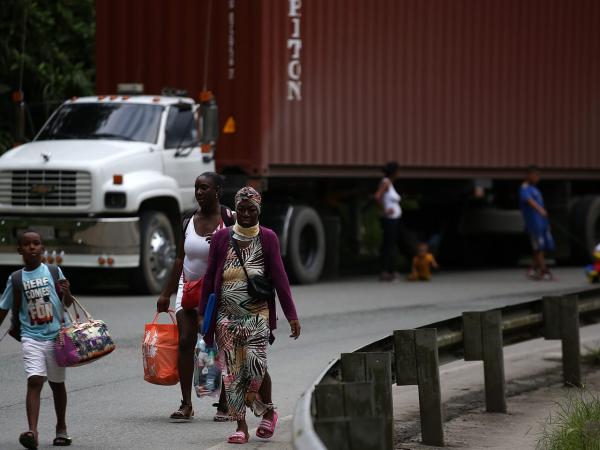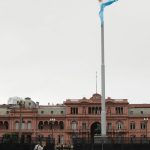The blockades in the country have not stoppedthe main highway arteries have become the stage for citizen complaints and petitions for several years now.
(Read: Government announces reopening of the Pan-American Highway for tractor-trailers).
Although in the report for the month of January Colfecar, a cargo carriers union, registered record figures of 81 blockades in the month, that is to say, 2.6 per day, the first days of February seem to indicate that this month they will be presented even more.
In the map by departments, 40 blockades are registered in the first 11 days of the second month of the year, that is to say 3.6 per day, one more than in the previous month. In total, 121 blockages and more than 2,121 hours lost due to this situation have accumulated so far this year, and more than 566 hours have been lost in February alone.
By departments, in 11 days, Boyacá takes the crown with more than six blocks per daythat is to say, that every two days there is more than one blockage.
The silver medal goes to the departments of Norte de Santander and Meta with five blocks each, that is to say, that in these parts of the country approximately every two days there is a blockade. In fourth and fifth place are Bolívar and Córdoba with four strikes each.
(In addition: This is the panorama after a month of the collapse in the Panamericana).
The Guajira for its part fell on the list to sixth place with three locks. The other 12 departments have registered between one and two strikes in the first 11 days of February.
In this regard, the union leader, Nidia Hernández, like other leaders in the sector, have asked the Government to take action on the matter and define effective protocols for managing community blockades on the country’s roads and apply the law when these demonstrations do not have the proper authorization to carry out these activities in the required framework.
“Because this situation is generating serious effects on all sectors of the national economy,” argued in this regard Nidia Hernández, president of Colfecar.
(Keep reading: With Petro’s speech, the day of demonstrations in the country ended).
Affectations in the transport of cargo
Not only the hours of blockades have had an impact on the economy of drivers and owners of vehicles that have been hit by inflation and now stop receiving the same incomeAccording to the executive president, the workers’ pocket is also hit by cost overruns, since the trips that a cargo vehicle made in a couple of days are now made in more than a week, which automatically generates an increase in freight . “This undoubtedly produces dire economic and social consequences for the country. Currently, the blockades by dissatisfied communities on national roads are the main bottleneck for cargo transportation in Colombia.
“With concern we see that the blockades are becoming more frequent and lasting longer, affecting the productivity of cargo vehicles, food security and the connectivity of Colombians”, Hernández pointed out with concern.
It is worth remembering that today the ‘Great March’ will take place at the national level by the opposition of the current Government, this to express their disagreement with the recent decisions of President Gustavo Petro regarding health and tax reforms, in addition to future reforms.
PAULA ANDREA GALEANO BALAGUERA
Portfolio Journalist














